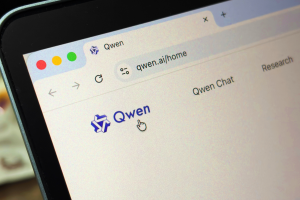Exploring the Latest Advancements in AI Technology

Recent developments in AI technology are generating excitement among tech enthusiasts. This week, groundbreaking updates promise to transform how we interact with AI.
Notably, a more human-like version of ChatGPT has been released, addressing previous concerns about its robotic tone. This evolution along with updates from other AI platforms is crucial for user experiences.
Humanizing ChatGPT
The latest version of ChatGPT addresses a common complaint: its robotic voice. With this update, the AI now sounds more natural. This change is highly anticipated by users who prefer a more human-like interaction.
Initial Impressions
The revamped ChatGPT demonstrates improved sentence structures, making its outputs feel more organic. Users no longer need custom instructions to eliminate GPT-specific language, enhancing the overall experience.
Compared to previous versions, the updates deliver a noticeable shift. The AI’s voice now aligns better with user expectations. Such changes are a significant step forward in AI communication.
Comparison with Claude
Claude, another AI tool, previously held an edge due to its natural tone. However, with the new ChatGPT, the competition is heating up.
While Claude maintained a human-like interaction, the updated ChatGPT now presents a viable alternative. Users can experience similar levels of engagement, which was not possible before.
Despite these improvements, some limitations persist. Claude still offers unique features that ChatGPT is catching up on, yet the gap is narrowing significantly.
ChatGPT API Updates
The latest ChatGPT version supports advanced voice modes accessible via API. Although rollout is gradual, this feature is poised to enhance user interaction across devices.
Users eagerly await these updates on their accounts. Once fully available, it promises to elevate desktop interactions to a new standard.
This API improvement is a testament to ongoing efforts in AI development, consistently striving for a more intuitive user experience.
Google’s Gemini and AI Studio
Google’s Gemini introduces a memory feature similar to ChatGPT. This allows more personalized interactions as the AI remembers previous conversations.
Gemini’s new tools aim to compete with established AI systems. Despite its comparable abilities, further enhancements are needed to dethrone current market leaders.
Innovations in Learning AI
Google’s new Learn LM models cater specifically to educational content, differing from general AI models. These models excel in providing focused educational assistance.
By tailoring responses to educational queries, these models enhance learning experiences. This specificity differentiates it from all-purpose AI applications, offering specialized support.
These educational models find usage in platforms like YouTube, significantly improving educational content delivery.
DeepSeek AI’s Reasoning Model
DeepSeek R1, a new reasoning model, surpasses many existing benchmarks. It offers open-source availability, inviting users to test its capabilities.
This model showcases a transparent thinking process, inviting comparison with OpenAI’s models. Its open-source nature makes it accessible for broader experimentation, driving forward reasoning AI innovations.
DeepSeek R1’s release heralds a new phase of innovation, where reasoning capabilities improve AI’s ability to solve complex problems.
Rapid Advances in AI Hardware
Custom hardware in AI processing leads to significant speed enhancements. As demonstrated, new chips drastically cut down processing times for language models.
These improvements promise faster responses, crucial for real-time applications. Such advancements help maintain AI’s relevance in technology-driven markets.
Mistral AI and ChatGPT Alternatives
Mistral AI offers a free alternative to ChatGPT, including image generation and web search features. The platform continues to evolve, catching up with established competitors.
Despite similarities, Mistral AI presents unique tools like PDF uploads, enhancing its usability. Its continued development suggests potential for disruptive innovation in the AI field.
Competition remains fierce as each platform strives to outdo the others in functionality and user satisfaction.
Perplexity’s Shopping Assistant
Perplexity introduces an AI-powered shopping assistant, creating a new niche in online shopping experiences. This tool offers product reviews and purchase recommendations.
While currently US-specific, this development signals a shift in how consumers might use AI in shopping. It integrates practical shopping solutions with AI’s analytical capabilities.
The merging of AI with consumer shopping suggests future directions for e-commerce, yet raises questions about recommendation objectivity.
AI technology continues to evolve, shaping how we interact with digital tools. These advancements promise more personalized and efficient user experiences.
As these technologies become more accessible, their impact on daily life is expected to grow, encouraging broader adoption across various sectors.





